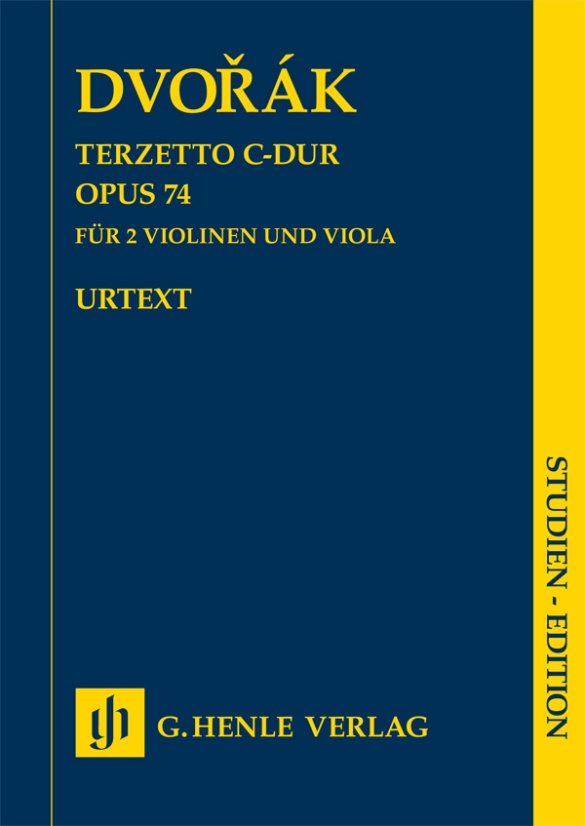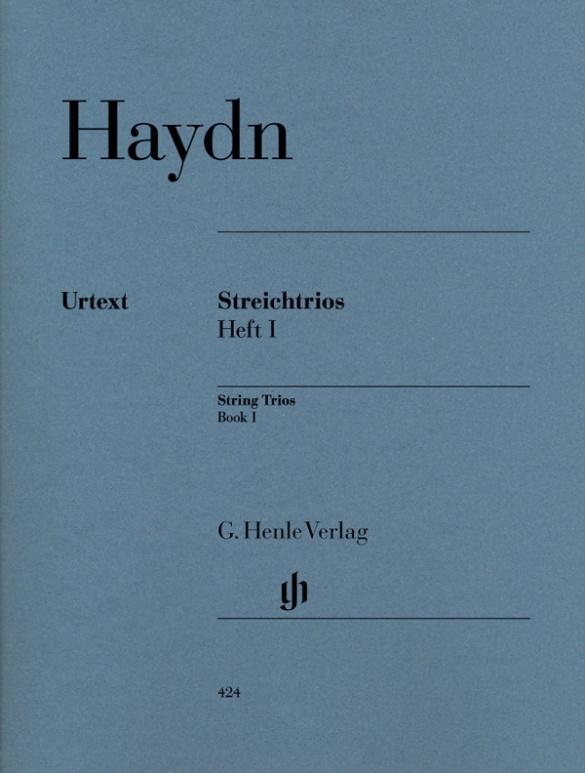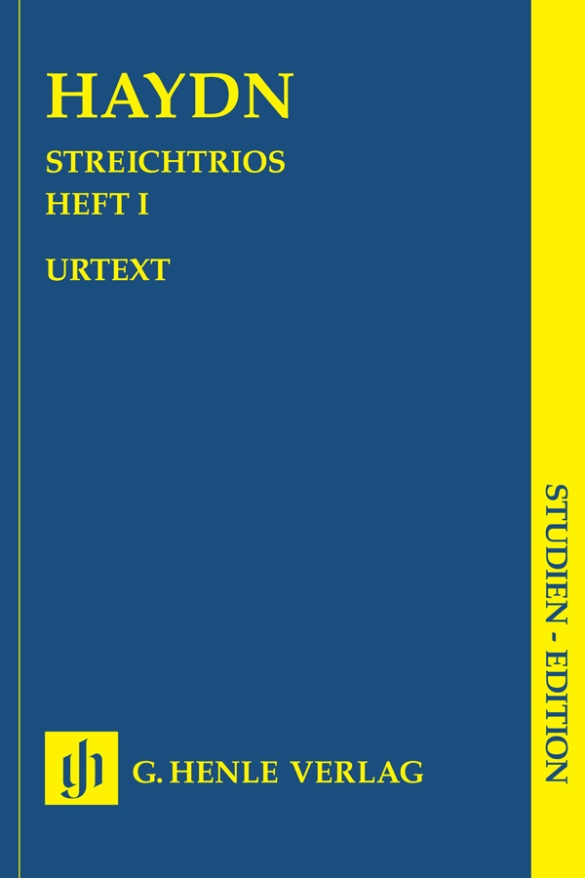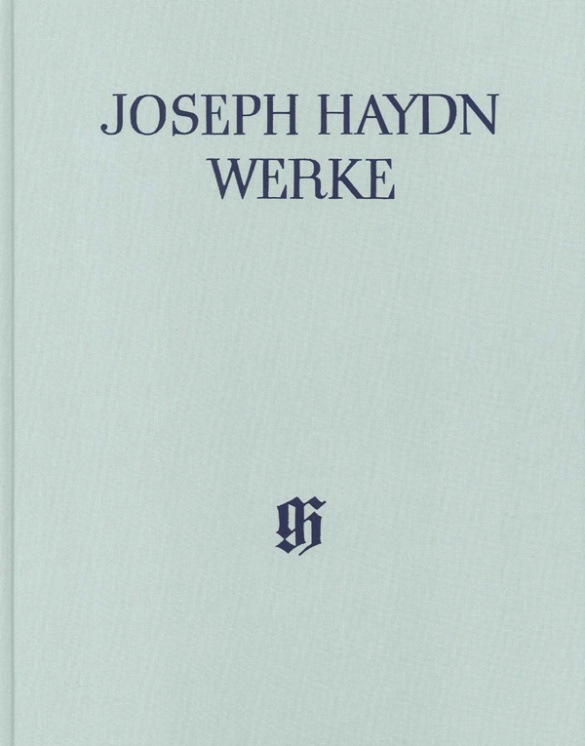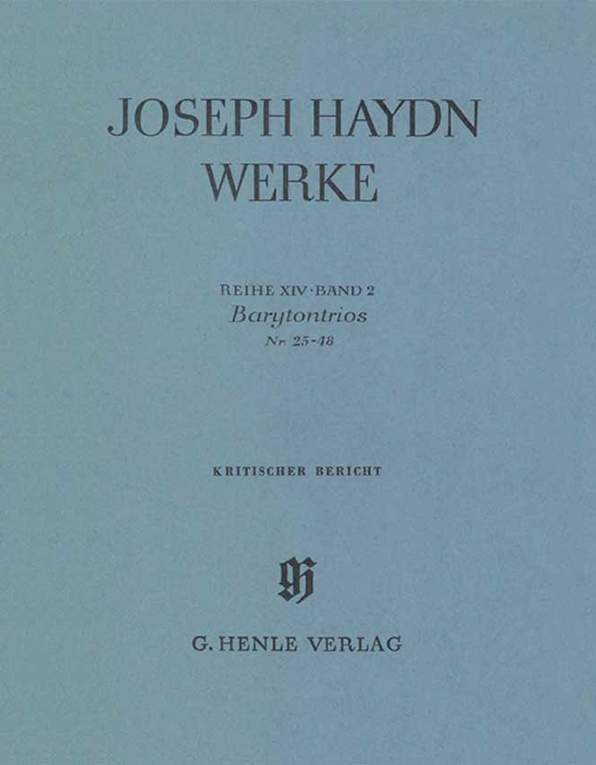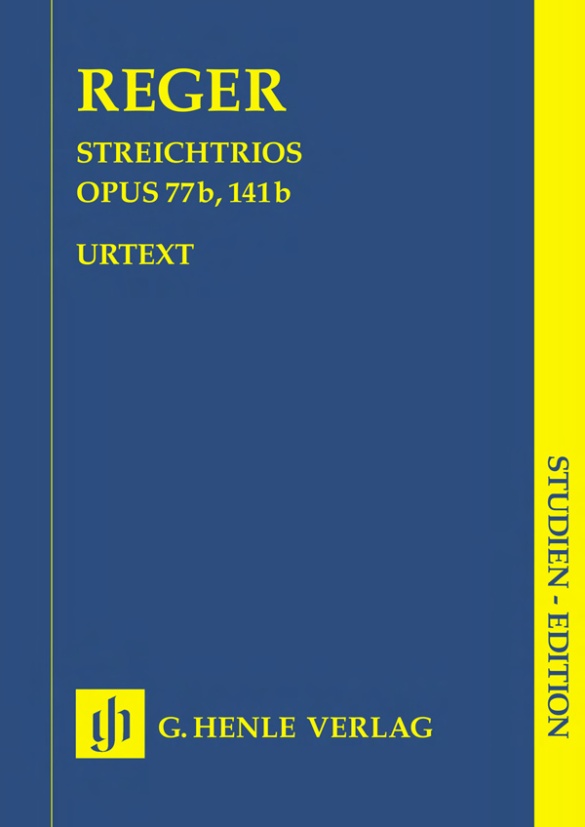Antonín Dvorák
Terzetto C major op. 74 for two Violins and Viola
Dvorák composed his Terzetto op. 74 in 1887 as the result of a spontaneous desire to write some domestic music. Inspired by neighbourhood violin lessons, he wrote these four little movements for two violins with viola accompaniment in the space of just a few days. This Terzetto is thus not technically difficult to play, though with its flowing melodies and spirited rhythms it still offers the best of Dvorák. It is not surprising that his publisher Fritz Simrock immediately snatched them up when Dvorák told him in 1887 that he was working on “little bagatelles”. The autograph of the score that contained many corrections nevertheless makes evident just how much hard work went into these “little bagatelles”. It also served as the engraver’s copy for the first edition. Both these sources were consulted for this Urtext edition that offers today’s players an authentic text of this musical jewel.
内容/詳細
作曲家について
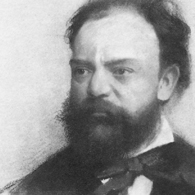
Antonín Dvorák
With Smetana he is the most famous Czech composer of the nineteenth century, contributing to the dissemination and appreciation of Czech music throughout the world. Among his around 200 works, encompassing all standard genres, are nine symphonies, fourteen string quartets, and twelve operas.
| 1841 | Born in Nelahozeves (Mühlhausen) on the Vltava River on September 8, the son of a butcher and innkeeper. |
| 1853 | Attends the training school in Zlonice; there he receives a comprehensive musical education from Josef Toman and the cantor Antonín Liehmann; subsequent education in Česká Kamenice (1856–57). |
| 1857–59 | Studies at the organ school in Prague. Until 1871 he will earn his living as a music teacher, organist, and violist. |
| 1861 | String Quintet No. 1 in A minor, considered his first work. |
| 1862 | Position as solo violist in the orchestra of the Bohemian Provisional Theater (conducted by Smetana, among others) |
| 1873 | Breakthrough with the premiere in Prague of his patriotic hymn “The Heirs of the White Mountain,” Op. 30. Employment at the private Prague School of Music. Several state scholarships. |
| 1874–77 | Organist at St. Adalbert church. |
| from 1876 | “Moravian Duets,” Opp. 20, 29, 32, and 38 (1876–77), “Slavonic Rhapsodies,” Op. 45 and the first series of “Slavonic Dances,” Op. 46 (both from 1878) enjoy great success. His fame abroad grows. |
| 1882 | Premiere of the opera “Dimitrij”, in the tradition of grand opera. |
| 1884 | First invitation to England, after which eight more will follow. |
| 1886 | Premiere of his oratorio “Saint Ludmila,” Op. 71. |
| 1891 | Professor of composition at the Prague Conservatory. |
| 1891–95 | Director of the National Conservatory of Music in New York. |
| 1893 | Premiere in New York of Symphony No. 9, “From the New World,” Op. 95 (American folkloric elements, cyclic techniques). |
| 1901 | Premiere in Prague of his most famous opera, “Rusalka.” |
| 1904 | Premiere in Prague of his last opera, “Armida.” Death in Prague on May 1. |
校訂者や運指担当者について

Annette Oppermann (校訂)
Dr. Annette Oppermann, born in 1965, trained as a music dealer in Frankfurt am Main and studied historical and systematic musicology as well as modern German literature at Hamburg University.
From 1993 to 1996 she worked as an editor for Sony Classical International in Hamburg; from 1996 to 1999 she was a doctoral candidate in the postgraduate programme Textkritik at the Ludwig-Maximilians-Universität in Munich, in January 2000 she earned her doctorate with a dissertation on “Musikalische Klassikerausgaben” (Hans-Joachim Marx, Hamburg). From 2000 to 2008 she worked as a research associate at the Joseph Haydn-Institut in Cologne, and was editor of the Oratorio “Die Schöpfung” in the Complete Edition of Joseph Haydn’s Works. Since February 2008 she has been an editor at G. Henle Publishers in Munich, with a particular focus on vocal music, chamber music and books.
製品安全に関する情報

G. Henle Verlag
製品の製造元に関する情報はこちらでご覧いただけます。G. Henle Verlag
Forstenrieder Allee 122
81476 München
info@henle.de
www.henle.com
Dies ist die für den praktischen Gebrauch geeignetste Ausgabe des Terzetts von Antonín Dvořák! Die Seiten sind vom Herausgeber so eingerichtet, dass man bis zum Ende des zweiten Satzes nicht umblättern muss, das Papier ist von stabiler Qualität und die Taktzahlen sind am Anfang jeder Linie gesetzt und zählen den Auftakt nicht mit. Keine der mir bekannten gedruckten Stimmen erfüllte in den vergangenen fünf Jahrzehnten alle diese Kriterien gleichzeitig. Der knappe Kritische Bericht zu dieser Urtext-Ausgabe zeugt von grosser Sorgfalt. ... Diese Ausgabe erleichtert jetzt auch die Probenarbeit und bannt alle Sorgen beim Umblättern.
Schweizer Musikzeitung, 2019おすすめ
autogenerated_cross_selling
このタイトルを含む他の版
このタイトルを含む他の版


